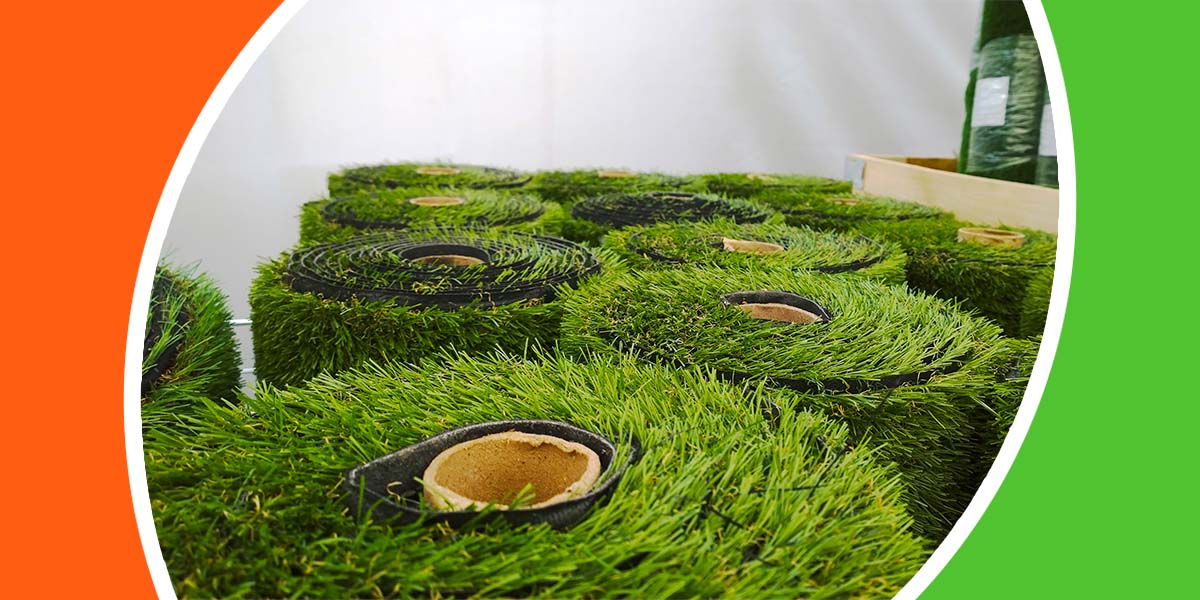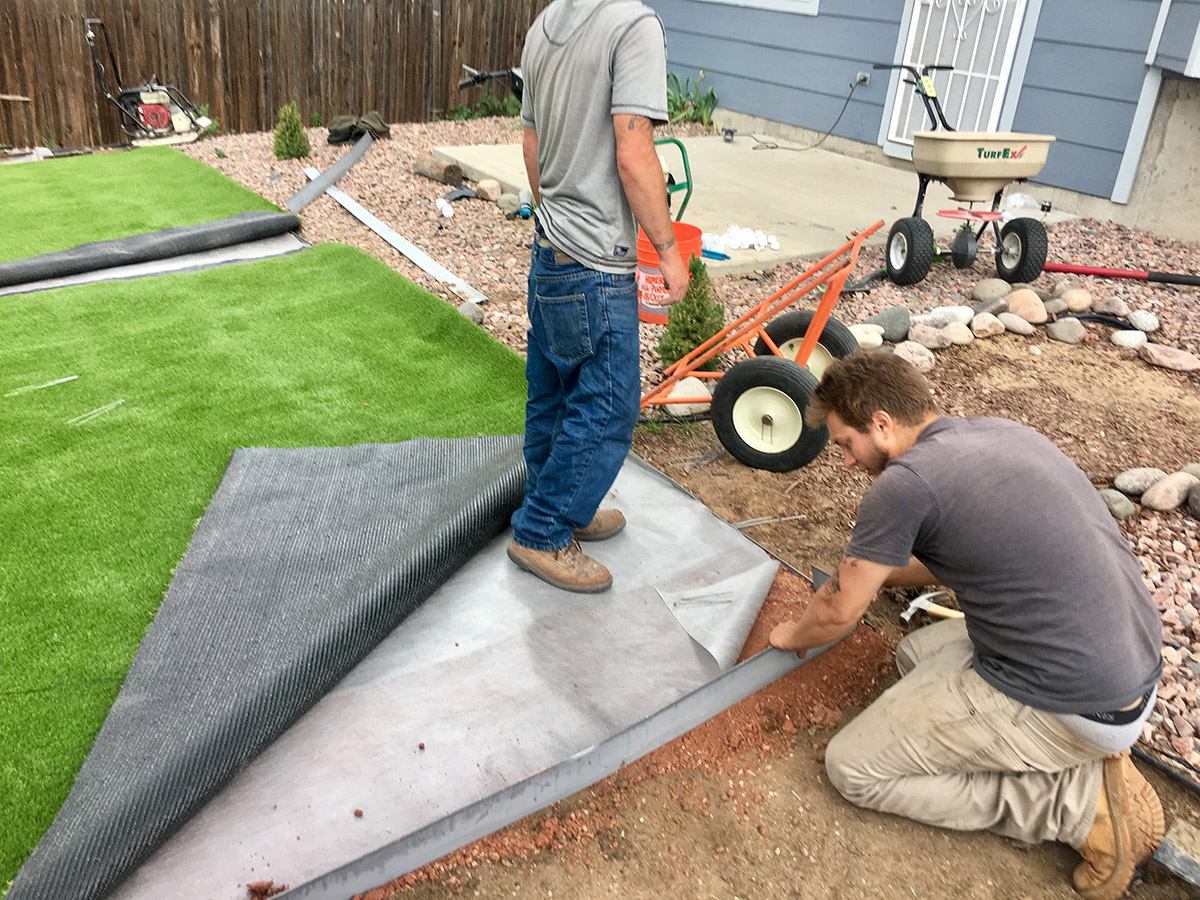Environmentally Safe Arizona Artificial Turf for a Year-Round Lush Green Lawn
Environmentally Safe Arizona Artificial Turf for a Year-Round Lush Green Lawn
Blog Article
Delve Into the Environmental Advantages of Opting for Artificial Turf Solutions
The fostering of fabricated lawn solutions offers a compelling opportunity to resolve pressing ecological difficulties. By considerably reducing water use and minimizing the application of harmful chemicals, these choices not only promote sustainable landscape design however also secure regional environments. Furthermore, the reduced carbon footprint related to lowered upkeep activities adds to an extra lasting approach to land monitoring. However, the ramifications of these benefits expand beyond simple preservation initiatives, questioning about their lasting effect on environment preservation and general eco-friendly balance. Checking out these measurements reveals a complex interaction worth thinking about.
Water Preservation Benefits
One of the most considerable advantages of man-made lawn is its capability to conserve water. In comparison, man-made turf does not need watering, substantially lowering the general need for water resources.
By eliminating the need for routine watering, synthetic grass contributes to sustainable landscape techniques and helps minimize the environmental effect of too much water intake. Moreover, the conservation of water includes the reduction of drainage, which can result in dirt erosion and river contamination.
Additionally, the setup of synthetic turf allows house owners and districts to assign water resources extra successfully, focusing on necessary usages such as drinking water and agriculture. The change towards synthetic grass not just advertises liable water use yet also aligns with wider environmental goals focused on maintaining all-natural sources.
As neighborhoods increasingly prioritize sustainability, the water conservation benefits of synthetic grass present a compelling situation for its adoption in industrial and property landscaping jobs.
Lowered Chemical Use
The transition to artificial turf considerably lowers the dependence on chemical treatments typically utilized in all-natural yard upkeep. Typical lawn administration normally entails the application of herbicides, pesticides, and fertilizers to promote development and control parasites. These chemicals can position dangers to human health and wellness, local wild animals, and the atmosphere, adding to soil and water contamination.
In comparison, fabricated grass eliminates the requirement for these hazardous materials. By decreasing the release of artificial compounds into the community, synthetic lawn promotes healthier dirt and water systems.
Additionally, the absence of chemical overflow associated with man-made lawn setups aids safeguard neighborhood rivers from air pollution, sustaining marine life and maintaining biodiversity. Artificial turf companies phoenix. As areas significantly prioritize sustainable methods, choosing artificial turf provides a sensible solution that aligns with environmental conservation goals. With this change, home owners can take pleasure in lavish environment-friendly spaces without jeopardizing ecological wellness, leading the way for an extra lasting future
Reduced Carbon Impact

Moreover, the installment of fabricated grass can lead to significant water conservation. All-natural yards need substantial quantities of water for watering, which not only contributes to the carbon footprint connected with water removal and treatment but likewise strains local water sources. In comparison, artificial grass requires marginal upkeep, calling for no watering, thus dramatically reducing water use and its linked power costs.
Additionally, the longevity of synthetic grass contributes to its decreased carbon effect. With a life expectancy of as much as 15 years or more, the need for regular replacements is reduced, leading to less her explanation waste and lower power intake in production and disposing of typical yard choices. On the whole, synthetic grass provides a sustainable option for ecologically conscious landscape design.
Environment Preservation
Environment conservation is an essential factor to consider in the dispute over landscaping choices, particularly when contrasting synthetic grass to all-natural turf. Natural lawn lawns often call for extensive maintenance, including making use of chemicals, herbicides, and fertilizers, which can adversely influence regional environments. These chemicals can leach right into the dirt and waterways, have a peek here hurting native plants and animals and interrupting local habitats.
Fabricated turf eliminates the requirement for dangerous chemicals, thus shielding nearby wild animals and maintaining the stability of surrounding environments. The setup of man-made grass can lead to the conversion of former yard locations into more biodiverse landscapes, such as pollinator yards or native plant areas, which can support local wildlife.
Ultimately, the transition to synthetic lawn not just preserves water and lowers upkeep efforts however additionally cultivates a much more harmonious relationship in between human tasks and the native environment, advertising habitat preservation while doing so.
Long-Term Sustainability
Long-term sustainability is an important element in assessing the benefits of artificial lawn over standard turf lawns. Among the most considerable benefits of synthetic grass is its resilience; it can last up to 15-20 years with marginal maintenance, whereas natural lawn requires constant reseeding and substitute. This durability reduces the demand for constant sources, such as water, fertilizers, and pesticides, which are vital for keeping a healthy turf yard.
Furthermore, man-made turf adds to a reduction in carbon emissions connected with lawn treatment equipment. Typical yards frequently call for gas-powered mowers, trimmers, and blowers, every one of which add to air pollution. Arizona artificial turf. On the other hand, man-made turf removes the need for such devices, advertising a cleaner environment
Additionally, the production of synthetic grass progressively makes use of recycled products, improving its sustainability account. As go now producers embrace environment-friendly techniques, the environmental footprint of synthetic lawn remains to reduce.

Final Thought
The adoption of synthetic grass services offers significant ecological benefits, including significant water conservation, reduced reliance on hazardous chemicals, and a reduced carbon footprint. Man-made turf help in maintaining natural environments by minimizing land disruption and advertising long-lasting sustainability through the use of sturdy materials. Jointly, these factors highlight the possibility of artificial lawn to contribute positively to ecological health and provide a feasible alternative to traditional landscaping methods in a significantly resource-conscious world.
In comparison, artificial grass does not need watering, dramatically reducing the overall demand for water resources. By lessening the launch of artificial substances right into the community, man-made grass advertises much healthier dirt and water systems.
Furthermore, the installation of synthetic grass can result in considerable water preservation. In contrast, synthetic grass requires very little maintenance, needing no watering, thereby considerably minimizing water usage and its connected energy expenses.

Report this page